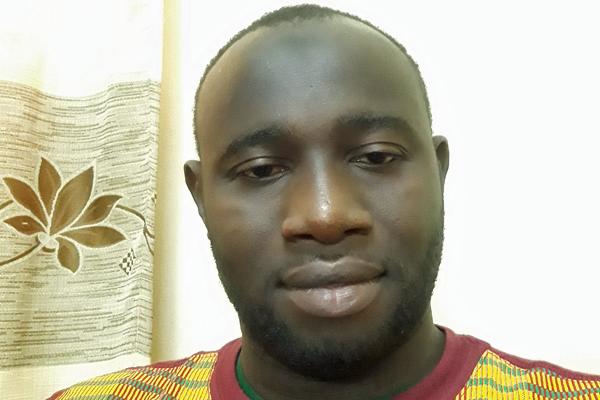
Four doctoral students awarded Contemporary History Institute fellowships

Four graduate students are the 2023–24 winners of the Contemporary History Institute's Klinder Fellowships and the Baker Peace Fellowships.
All four are Ph.D. candidates, which means they have completed all of the required coursework and have successfully passed their qualifying exams. The award provides fellows with a stipend to facilitate dissertation completion or research.
"Some students use these fellowships to visit archives or libraries for further dissertation research. Other students use the funding to attend and present their research at academic conferences," said Alec Holcombe, associate professor of history and director of the Contemporary History Institute (CHI).
Caitlin Bentley and Shalon van Tine are the 2023–24 Klinder fellows. The Klinder endowment was established in the 1990s to fund a dissertation writing year for Ohio University doctoral students enrolled in the Contemporary History Institute Certificate program.
Harrison Fender and Sana Saidykhan are the 2023–24 Baker fellows. The John and Elizabeth Baker Peace Endowment funds the Baker Peace Fellowship through the Baker Peace Studies program, which was created in the 1980s to support teaching, scholarship and conferences at Ohio University that promote the study of conflict and conflict resolution. The program offers at least one fellowship each year to a CHI certificate student.
About the Fellowship awardees

Caitlin Bentley
Bentley’s dissertation, "Unconventional Alliances: Allied Intelligence Support to Anti-Japanese Resistance in the Philippines, World War II 1939–1945," explores the unique nature of U.S.–Philippine intelligence cooperation during and after World War II. Her early chapters focus on U.S. all-source intelligence support to special operations in the Philippines between 1942 and 1944 when U.S. intelligence services turned to academic specialists like Joseph R. Hayden. During his war time civilian service, Hayden’s expertise shaped regional planning and ensured stability for Allied forces in the Asia Pacific, allowing the U.S. to securely move to retake the Philippines and end the Japanese occupation.
Her dissertation concludes by looking at the ways this shaped the post-war cooperation now embodied in the 1951 U.S.–Philippine Mutual Defense Treaty and underwriting the daily partnership between the nation’s military, policy and intelligence specialists.
Bentley graduated from Ohio State University with a B.A. in History in 2013. She earned an M.A. in History from Ohio University's College of Arts and Sciences in 2015. She is currently a Ph.D. candidate studying military history under the advisement of Professor Ingo Trauschweizer. Additionally, Bentley has served as a U.S. Navy civilian since 2020, focusing on the Philippines and broader Southeast Asian civil maritime and irregular warfare during an era of great power competition.

Shalon van Tine
Van Tine’s dissertation, "Gen X: A Cultural History of the Other Lost Generation," focuses on the music, film, literature and art of 1980s and 1990s youth culture, which frequently reflected angst about global politics. Generation X has often been remembered as apolitical “slackers” compared to earlier generations, but this caricature does not portray the ways that young people during this era created new means to protest social and economic problems.
Rather than being unaware and apathetic to contemporary issues, van Tine’s research of 1980s and 1990s youth culture has revealed that their cultural creations confronted globalization and deindustrialization, rising divorce rates, teen homelessness and suicide, police brutality, drug addiction, the AIDS epidemic, anxiety about digital technology, environmental destruction, and other serious concerns at the end of the 20th century.
Van Tine earned a B.A. in Philosophy from Arizona State University in 2010, an M.A. in Humanities from California State University in 2014, and an M.A. in World History from Norwich University in 2016. She is currently studying American cultural and intellectual history at Ohio University under the advisement of Kevin Mattson, the Connor Study Professor of Contemporary History. Additionally, van Tine teaches courses on the humanities, world history, U.S. history, women’s history, African American history, and the history of science and technology for University of Maryland Global Campus.

Harrison Fender
Fender’s dissertation, "The Maritime Strategy Ashore: Amphibious Operations, Intelligence, and the Security of NATO’s Littoral,"” examines the role of British and American amphibious forces along NATO’s flanks. It focuses on the 1970s and 1980s, a period when amphibious operations experienced a revival in British and American naval planning.
Fender argues that intelligence assessments on vulnerabilities along NATO’s flanks, particularly the northern flank, reinforced the need to maintain amphibious readiness. Amphibious operations would eventually have an important role in the maritime strategy of 1980s, as British and American amphibious forces would ensure aircraft carriers and other surface units had access to Soviet waters.
Fender earned a B.A. in History from Northern Kentucky in 2017 and an M.A. in History from Ohio University's College of Arts and Sciences in 2019. He is currently studying British and Naval history under the direction of Professor John Brobst.

Sana Saidykhan
Saidykhan’s dissertation, “Political Economy of Deforestation: Governance and Commercialization of Environment in The Gambia, 1936–2005,” examines changes in the management of forests by the Gambian state from the colonial to the post-colonial period. He argues that fears of deforestation and environmental degradation provided the basis for forest regulations, which were undermined by economic imperatives that the political elites harbored. While colonial and post-colonial forestry protocols transformed the sector into a domain fit for modern governance, its implementation accelerated deforestation. Between the 1970s and 1990s, international donor support reinforced the same colonial top-down approaches to forestry management, which highlights the continuities and change from the colonial to the post-independence era.
Framed as an environmental history project, his study seeks to offer analysis of the failures of state-centered forestry management programs and their impact on local, rural farmers whose lives were constrained by these elitist and/or donor driven conservation programs. In addition to highlighting the changing role of government and NGOs in creating new forest parks and management programs, his dissertation also adds empirical evidence to the importance of considering local knowledge and involvement in forest management.
Saidykhan earned a B.A. in English and History from the University of The Gambia and an M.A. in History from Ohio University's College of Arts and Sciences in 2018. He is currently studying African environmental history with Associate Professor Assan Sarr.
